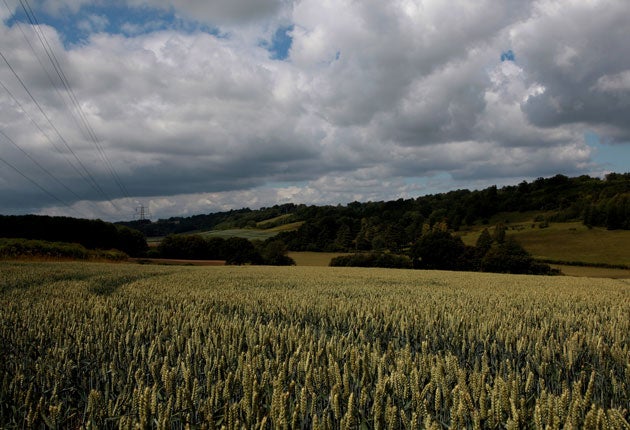Coalition MPs condemn abolition of Rural Advocate
Countryside needs an independent voice in government, say rebellious Conservative and Lib Dem backbenchers

David Cameron faces a rural revolt from coalition backbenchers who claim the Prime Minister risks falling into the trap of believing the countryside is a "chocolate-box" playground for the rich.
Conservatives and Liberal Democrats have condemned the decision to abolish the Rural Advocate, who acts as an independent voice for villages across England. The post will go with the abolition – under the coalition's much-heralded "bonfire of the quangos" – of the Commission for Rural Communities (CRC). The commission's chairman, currently Stuart Burgess, also performs the role of advocate.
Critics say it will be the first time there has not been an independent voice for the countryside since David Lloyd George was Prime Minister.
Ministers are expected to come under pressure to reverse the decision in the Commons this week when the Public Bodies Bill receives its second reading. Many of the functions of the CRC are to be rolled into the Department for Environment, Food and Rural Affairs (Defra).
Already a dozen members of staff have moved to the new Rural Communities Policy Unit, which is being set up in the department, while the rural affairs minister, Richard Benyon, is expected to take on a more significant role, although critics insist he is unlikely ever to speak out publicly against government policy.
Lord Newton of Braintree, a cabinet minister in the Thatcher and Major governments, dismissed as "complete and utter rubbish" the idea that a unit in the ministry could replace the Rural Advocate, who tours the country to see first-hand the problems faced by remote communities. In the past, a series of damning reports on housing, broadband access and transport have led to changes in policy.
Lord Cameron of Dillington, who was appointed to the advocate role by Tony Blair in 2000, "begged" ministers to rethink their plans, warning of the "still unrecognised issues of rural deprivation, which continue to come very low on every Government's priorities".
He added: "All too often – in fact, almost always – urban civil servants ignore or are unaware of the difficulties of delivery in the countryside. It would be a tragedy if the countryside were to lose that independent voice."
The issue is expected to become a flashpoint of dissent among Tory and Lib Dem MPs still reeling from Defra's abortive plan to sell-off forests, which allowed Labour to position itself as the party of the countryside.
Andrew George, the chairman of the Lib Dem environment policy committee, said he hoped to persuade the Government to perform a U-turn. "It is particularly important to protect rural communities and ensure they don't just become an exclusive reserve of the better off.
"The big risk is that the small and weak voices tend to get ignored. They have the added problem of trying to persuade the powers-that-be that the superficial image of the countryside as a rather well-heeled place of rural tranquillity is not true.
"You have to punch your way through the chocolate-box image. It is that important role that I think will simply get lost if the Rural Advocate is removed."
The Right Reverend Michael Langrish, the Bishop of Exeter, told a House of Lords debate: "Within the current climate of cutbacks and of retrenchment of public services, there is a great risk that the voice of rural communities will now be lost."
Lord Knight, who as a Labour minister created the role, said it was vital to have "an independent rural voice that will be able to tell the Government what they do not want to hear".
Lord Henley, an environment minister, said the Government had concluded "no individual needs to be so designated as they have very strong rural credentials of their own, up to and including the Prime Minister". But he conceded that a review will be carried out and ministers "will always be willing to revisit these matters".
Join our commenting forum
Join thought-provoking conversations, follow other Independent readers and see their replies
Comments
Bookmark popover
Removed from bookmarks